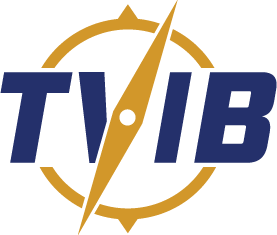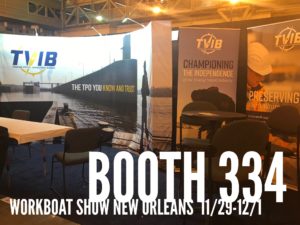Article reposted with permission from American Waterways Operators
10/31/2017
Over the last two months, the Jones Act was publicly attacked in the aftermath of the three major storms of the 2017 hurricane season — Harvey, Irma, and Maria — and set a record for media attention that rivals that of the 2010 Deepwater Horizon disaster.
AWO and the American Maritime Partnership (AMP) met with White House officials and key Members of Congress to provide up-to-date information about the ability of U.S.-flagged vessels to respond to each crisis. As a result, the 10-day Jones Act waiver issued by the White House for the delivery of cargoes to Puerto Rico was not renewed after its October 8 expiration. In addition, the two organizations pursued an aggressive press strategy centering on the American maritime industry’s leadership in the effort to deliver emergency cargoes to storm-ravaged communities on the mainland and in Puerto Rico. In the latter case, AWO and AMP corrected inaccurate media reports by offering on-the-ground evidence of severely damaged infrastructure and a temporary scarcity of truck drivers as the sources of the delay in transporting supplies.
Jones Act opponents in and outside of Congress used the storms as an opportunity to advance their longstanding desire to repeal the 1920 law. Sen. John McCain (R-AZ), along with Sens. Mike Lee (R-UT), James Lankford (R-OK), and Jeff Flake (R-AZ), introduced S.1894 to exempt Puerto Rico from the Jones Act. Recognizing that his bill would not be taken up by the committee of jurisdiction, Sen. McCain introduced the bill using Rule XIV, a procedural motion that allows a sponsoring lawmaker to bypass committee consideration and call up the measure at any time while the Senate is in session.
In the House, a number of Democrats representing districts with large Puerto Rican populations put forth a proposal to ease the criteria by which the Executive Branch may grant Jones Act waivers. Rep. Gary Palmer (R-AL), who unsuccessfully attempted to advance anti-Jones Act waivers in the past, introduced a measure to exempt Puerto Rico from the Jones Act for five years.
In an effort to set the record straight, House Coast Guard and Maritime Transportation Subcommittee Chairman Duncan Hunter (R-CA) and Ranking Member John Garamendi (D-CA) held a roundtable discussion and a subsequent hearing at which maritime industry officials presented the facts about their role in recovery efforts. AWO and AMP members — including Michael Roberts of Crowley Maritime Corp.— provided lawmakers data and updates on U.S.-flag vessel activity around Puerto Rico before, during, and after the storms, as well as a status report on logistics between shoreside terminals and inland communities. Rep. Hunter stated unequivocally that the decision to waive the Jones Act was a mistake if President Trump “stands for the American worker, and… for American jobs and national security.”
Jones Act critics on Capitol Hill continue to look for opportunities to weaken the law, including through the disaster recovery appropriations process.
Congress sent the disaster supplemental appropriations bill to the President on October 24. No Jones Act amendments to that measure were considered in the House, and Sen. McCain was prevented from calling up his bill as an amendment in the Senate due to a parliamentary procedure used by Majority Leader Mitch McConnell (R-KY). Sen. Lee, however, criticized the Jones Act during floor debate. It is expected that the Trump Administration will request an additional disaster recovery funding bill in the near future.
AWO and AMP will continue a vigorous program of Administration and Congressional advocacy as well as media outreach to protect the Jones Act.

